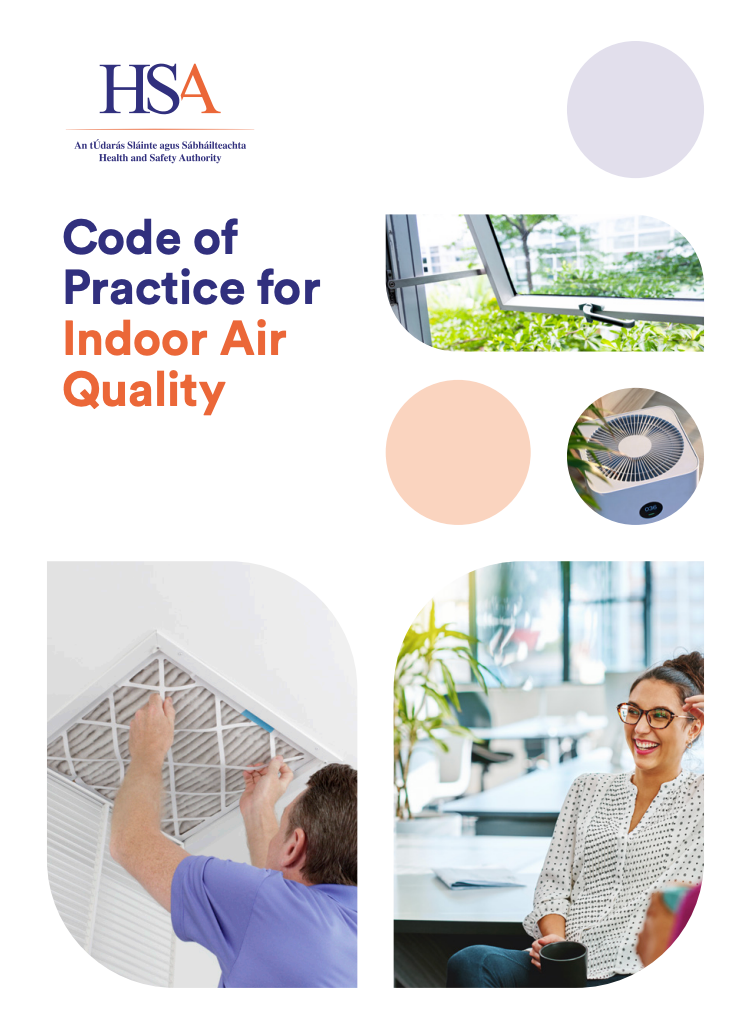The global covid pandemic shed light on the importance of air quality. The long months of wearing masks and social distancing left many people thinking about the air we breathe. While these concerns are primarily centred on airborne illness, many air pollutants can have equally (or even worse) effects. But with the air we breathe still top of mind for many, we are looking at the significance of good air quality and how we can act on the heightened awareness brought around by covid-19.
As we return to the office, shops reopen, and the masks come off, we find ourselves back in older, familiar situations. All be it with a different outlook for many of us. But the new wariness of what's in the air around us is not bad. In fact, it's the very opposite. It's an opportunity to address an often overlooked but very serious problem.

What Is Bad Air Quality?
Air quality refers to the amount of pollution in the air. Many pollutants impact air quality, and excess amounts or prolonged exposure to them can be very harmful, as we'll look at in greater detail later. Pollutants that affect air quality include:
- Volatile organic compounds (VOCs) (such as Formaldehyde)
- Carbon monoxide (CO)
- Carbon dioxide (CO2)
- Ozone (O3)
- Nitrogen dioxide (NO2)
- Particulate matter (PM)
- Biological pollutants
Why Is Indoor Air Quality Important?
When considering air quality, it seems obvious to look to the outdoors. Particularly, we might look at the output of vehicles or factories. However, there is a considerable problem with indoor air quality. Poor indoor air quality can have a significant and lasting impact on our health. After all, we do spend much of our time indoors. Furthermore, many of the pollutants we may think of as affecting outdoor air quality, such as car emissions, end up indoors too.
How Is Indoor Air Quality Assessed?
Indoor air quality is measured with an internal air quality assessment (IAQA) which looks at a variety of factors to determine the suitability of the air. It addresses everything from humidity and temperature to pollutant readings. It will also look at microbiological factors that can impact air quality, such as mould and damp.
Beyond what is present in the air, an IAQA will also look at areas responsible for the movement of the air, including ducts, air conditioning, and natural airflow. Combined, these elements (and the many others an assessment will look at) build a clear picture of your air quality. These are then used to make personalised recommendations for improving your air quality.
What Are The Effects Of Bad Air Quality?
There are 36,000 deaths in the UK every year due to poor air quality. In addition, the 12.7 million people living with long-standing respiratory conditions and 7.4 million with heart and circulatory diseases are also greatly affected.
The impact of bad air quality on health is prevalent and severe. However, there are other problems too. For example, poor air quality has been connected to reduced productivity and impaired learning in schools. Furthermore, there are secondary effects of its impact on health. For example, the increase in sick days can have a signifcant impact on a business. The Confederation of British Industry (CBI) suggest that the 3 million workdays lost to illness could be regained if pollution levels were reduced to
World Health Organization recommended levels.
Air Quality Regulations And Legal Requirements
Although the covid-19 pandemic may have brought more of a focus to air quality, it is far from a unrecognised problem. The health consequences of poor air quality are well documented. As a result, there is a range of legislation surrounding air quality with regards to offices, schools, factories and more.
The Control of Substances Hazardous to Health (COSHH) regulations require employers to assess risks to employees. It also stipulates that they must adequately control exposure to substances which are hazardous to health.
How Do You Improve Indoor Air Quality?
Now that we have addressed what air quality is, why it matters, and the responsibility of employers, we will look at how we can improve indoor air quality. There are two primary areas to focus on; preventing outdoor pollutants from getting into the building and reducing indoor pollution emissions.
Prevent Outdoor Pollutants From Getting In
At first glance, the solution to reducing bad indoor quality may seem very simple - open a window. Unfortunately, whilst some polluted indoor air may escape, more heavily polluted air from outside can also come in. Here is how you can prevent the ingress of outdoor pollutants.
Ventilation
The position of ventilation intake is crucial to air quality. Ventilation bringing air from outside can be harmful if it is positioned close to a source of pollution. For instance, you should avoid ventilation which intakes from close to roads. One way to potentially avoid this and limit the effects is to place your ventilation intake on the roof. This will keep your ventilation away from ground-based pollutants.
Filtration
The second factor for preventing the intake of pollutants is filtration. Even if your intake is not positioned immediately near a source of pollution, there will still be pollutants in the air. Filtration physically removes particles from the air. HEPA filters can capture larger particles such as mould spores and pollen and smaller harmful particles from fossil fuels and chemicals.
Airtight
As we discussed, in brief, earlier, the impulse to open a window may do more harm than good. In fact, you may wish to take a step in the opposite direction. Ensuring your building is airtight - or as close as you can get.
Reduce indoor pollutant emission
The other side of the coin, when it comes to improving indoor air quality, is tackling the pollution emissions inside.
Filtration
As with air from outside, filtration is key to improving the quality of the air inside. Filtration removes the nasty pollutants from the air allowing you to recirculate cleaner air throughout your building. Recirculating indoor air is common in mechanically ventilated buildings, making filtration a necessity.
Ventilation
Localised and focussed ventilation is great for tackling unavoidable pollutants. You may find such pollutants from cooking or office equipment, for example. These localised pollutants can be extracted by localised or central ventilation.
Control Source Of Air Pollution
Whilst you can reduce the pollutants in the air by diluting them through filtration and ventilation, limiting the emittance of contaminants is also key. Avoid activities that produce pollutants where possible and use low-emitting furnishings to minimise the pollutants emitted within the building.
Improve Your Indoor Air Quality
Indoor air quality is a crucial issue. The effects of bad air quality are severely harmful. Thankfully there are steps to mitigating the risks as described in this guide. And at Ultra Protect, we have the team and tools to help you achieve better air quality. Firstly, we provide those all important air quality assessments which come with personalised recommendations. Plus, once you understand your air quality conditions, we provide all the air quality solutions you need, including ventilation, air purifiers and air filters.
Learn More About Air Quality
Air quality is a vital issue. Hopefully, this guide has provided some important insights into the topic. If you want to learn more, we have lots of helpful information on our blog. For more information on ventilation and its role in air quality, check out
Why Ventilation Is Important. Or find out the role of dust in air quality with our guide on
The Dangers of Dust in the Workplace.







